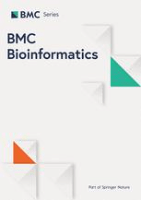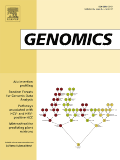
BRIEFINGS IN BIOINFORMATICS
metrics 2024
Exploring the Frontiers of Bioinformatics Innovation
Introduction
BRIEFINGS IN BIOINFORMATICS is a premier academic journal dedicated to the dynamic field of bioinformatics, published by Oxford University Press. With a prestigious standing reflected in its Q1 quartile rankings in both Information Systems and Molecular Biology, this journal serves as an essential resource for researchers, professionals, and students eager to explore the intersection of biology and computational sciences. The journal not only publishes high-impact research articles but also reviews and critical commentaries that push the boundaries of understanding in bioinformatics. As it converges its objectives towards fostering innovation and knowledge dissemination from 2000 to 2024, BRIEFINGS IN BIOINFORMATICS offers rich insights that remain pivotal to advancements in genomic studies, data integration, and computational tools. Its ranking in the top percentiles of Scopus—30th among 394 in Computer Science and 44th among 410 in Molecular Biology—underscores the journal's influential presence in the academic community. Engaging with the latest research and trends, this journal is integral for anyone invested in the future of life sciences and data analytics.
Metrics 2024
 2.14
2.14 6.80
6.80 7.90
7.90 142
142Metrics History
Rank 2024
Scopus
IF (Web Of Science)
JCI (Web Of Science)
Quartile History
Similar Journals

BioData Mining
Pioneering New Paths in Computational BiologyBioData Mining is a distinguished open access journal published by BMC, focusing on the dynamic intersection of bioinformatics, computational mathematics, and molecular biology. Since its inception in 2008, this journal has provided a critical platform for researchers and professionals to publish their findings, contributing significantly to the collective knowledge in fields such as biochemistry, computational theory, and genetics. With a robust impact factor and a commendable h-index, BioData Mining continues to be a vital resource for academic and industrial advancements, ranked in the top quartiles in various categories according to the 2023 metrics. The journal's commitment to open access ensures that cutting-edge research is readily available to the global scientific community, thereby enhancing visibility and fostering collaboration among scholars. Whether you are a researcher, student, or practitioner, engaging with BioData Mining will equip you with relevant insights and developments in the fast-evolving realm of bioinformatics.

Current Bioinformatics
Exploring Interdisciplinary Approaches to Biological DataCurrent Bioinformatics, an esteemed journal published by Bentham Science Publishers Ltd, serves as a pivotal platform for the dissemination of cutting-edge research in the fields of bioinformatics, biochemistry, computational mathematics, genetics, and molecular biology. With an ISSN of 1574-8936 and an E-ISSN of 2212-392X, this journal has established itself as a vital resource for researchers, professionals, and students keen on exploring interdisciplinary approaches to biological data analysis. Its prominence is reflected in its quartile rankings for 2023, where it stands in Q3 for biochemistry and computational mathematics, alongside Q4 rankings in genetics and molecular biology. Current Bioinformatics, located in the United Arab Emirates and converging from 2007 to 2024, aims to foster innovation in the field by presenting original research articles, reviews, and case studies that drive forward our understanding of complex biological systems through computational techniques. This journal is an integral resource for those wishing to stay at the forefront of bioinformatics research and applications.

npj Systems Biology and Applications
Innovating Interdisciplinary Solutions for Biologynpj Systems Biology and Applications, published by NATURE PORTFOLIO, is a premier open-access journal that has been at the forefront of the field since its inception in 2015. With a commendable focus on the interdisciplinary integration of applied mathematics, biochemistry, computer science, and drug discovery, the journal currently enjoys a Q1 ranking across multiple categories, showcasing its significant impact within the scientific community. In 2023, it ranked 70 out of 635 in Applied Mathematics and holds a notable place in the 89th percentile, confirming its esteemed reputation among researchers. Situated in the United Kingdom, this journal not only promotes innovative research in systems biology but also serves as an essential platform for the dissemination of high-quality studies that delve into modeling, simulation, and the application of biological systems in drug discovery processes. With an open-access model, authors can reach a broad audience, enhancing collaborations and advancing knowledge across disciplines, making it an indispensable resource for researchers, professionals, and students alike seeking to contribute to the evolving landscape of systems biology.

BMC BIOINFORMATICS
Advancing the Frontier of Biological Discovery through Computation.BMC Bioinformatics is a leading open-access journal published by BMC, dedicated to the rapidly evolving field of bioinformatics. With its inception in 2000, the journal has established itself as an essential resource for researchers, professionals, and students alike, disseminating high-quality research that bridges the gap between biology and computational science. BMC Bioinformatics holds a reputable Q1 ranking in Applied Mathematics and Computer Science Applications, and a Q2 ranking in both Biochemistry and Structural Biology, reflecting its significant impact in these interdisciplinary fields. The journal's broad scope encompasses innovative methodologies, tools, and applications that drive progress in biological research through computational approaches. With open access since its inception, the journal ensures unrestricted availability of cutting-edge research findings, promoting knowledge sharing and collaboration in the global scientific community. As it continues to publish advancements up to 2024, BMC Bioinformatics remains a cornerstone for those seeking to enhance their understanding of bioinformatics and its vital role in modern science.

Network Modeling and Analysis in Health Informatics and Bioinformatics
Innovating the intersection of networks and health data.Network Modeling and Analysis in Health Informatics and Bioinformatics, published by SPRINGER WIEN, stands as a vital resource in the interdisciplinary domains of health informatics and bioinformatics. With an ISSN of 2192-6662 and E-ISSN of 2192-6670, this journal aims to facilitate the dissemination of innovative research that intersects network modeling, data analysis, and health applications. The journal competes at a Q3 quartile level across multiple categories including Biomedical Engineering and Health Informatics, showcasing its growing influence within the academic community. As of 2023, it holds impressive Scopus rankings, including a 20th position in Urology, illustrating its significance in the field. Although not an open access publication, the journal is dedicated to providing cutting-edge insights from 2012 to 2024 and is poised to attract researchers, professionals, and students striving to push the boundaries of knowledge in health informatics and bioinformatics. This journal is not just a platform for sharing scholarly articles; it is a catalyst for advancing methodologies that enhance patient care and medical research.

Frontiers in Bioinformatics
Exploring New Frontiers in Computational ScienceFrontiers in Bioinformatics is a leading academic journal dedicated to advancing the field of bioinformatics by publishing high-quality research and review articles. Published by FRONTIERS MEDIA SA, this open-access journal aims to foster innovative research, promote collaborative initiatives, and provide a platform for the dissemination of findings related to computational biology, biostatistics, and the intersection of bioinformatics with other biological disciplines. With a focus on promoting accessibility and visibility of research, Frontiers in Bioinformatics operates under a rigorous peer-review process, ensuring that all published content meets the highest academic standards. The journal has shown a commendable rank across various Scopus categories, including Mathematics, Computational Mathematics, and multiple dimensions of Biochemistry and Molecular Biology, indicating its relevance and impact within the research community. Researchers, professionals, and students will find this journal invaluable for staying abreast of the latest developments and breakthroughs in bioinformatics, enhancing their studies and professional projects.

GENOMICS
Elevating Genetic Research to New HeightsGENOMICS is a prestigious journal published by Academic Press Inc Elsevier Science, dedicated to advancing the field of genetic research and molecular biology. With an impressive impact factor, this journal is recognized for its rigorous peer-review process and high-quality publications that cover a wide range of topics within the genomics discipline. Operating from the United States, GENOMICS has established itself as a vital resource for researchers, professionals, and students alike, standing at Q2 in the Genetics category according to the latest rankings. With a rich history dating back to 1987 and convergence extending to 2024, the journal highlights cutting-edge discoveries and methodologies, ensuring that its readership remains at the forefront of genetic advancements. Although currently not an open-access journal, articles published within its pages are often accessible through various academic platforms, enhancing worldwide reach and dissemination. For those engaged in the fields of biochemistry, genetics, and molecular biology, GENOMICS serves as an indispensable platform for impactful research and collaborative initiatives.

GENERAL PHYSIOLOGY AND BIOPHYSICS
Bridging Biological Systems with Physical PrinciplesGENERAL PHYSIOLOGY AND BIOPHYSICS, published by AEPRESS SRO, is a pivotal journal in the fields of biophysics and physiology, dedicated to advancing knowledge and fostering research in these increasingly vital disciplines. Established in 1983 and set to converge in 2024, the journal provides a platform for scholarly articles that explore the intricate relationships between biological systems and physical principles. Its current category quartiles include Q3 in Biophysics and Q4 in Physiology, demonstrating a growing influence among researchers, with current Scopus ranks reflecting its commitment to quality and relevance. Despite not being an open-access publication, the journal remains a valuable resource for professionals and students aiming to stay informed on the latest discoveries and methodologies. By supporting interdisciplinary research and innovation, GENERAL PHYSIOLOGY AND BIOPHYSICS plays a crucial role in shaping the understanding of complex biological interactions and applications in medicine.

Briefings in Functional Genomics
Innovating Insights into Genetic ProcessesBriefings in Functional Genomics, published by Oxford University Press, serves as a crucial academic resource in the fields of biochemistry, genetics, and molecular biology. With an ISSN of 2041-2649 and an E-ISSN of 2041-2657, this esteemed journal explores innovative research and developments in functional genomics, with a commitment to advancing our understanding of genetic processes and their implications in health and disease. Ranking in the Q2 quartile for both Biochemistry and Genetics, and occupying a prominent Q1 status in the domain of interdisciplinary Medicine, the journal is positioned as a leading platform for researchers seeking to disseminate their findings to a global audience. Although it does not currently offer open access options, its accessibility through institutional subscriptions and its esteemed impact factor underscore its importance in the research community. Covering converging topics from 2010 to 2024, Briefings in Functional Genomics not only keeps pace with the rapidly evolving landscape of genomics but also stimulates collaboration and dialogue among scientists and industry professionals alike, making it an indispensable tool for researchers, practitioners, and students eager to engage with cutting-edge genomic science.

JOURNAL OF COMPUTATIONAL BIOLOGY
Innovating Insights at the Intersection of Biology and TechnologyJOURNAL OF COMPUTATIONAL BIOLOGY, published by Mary Ann Liebert, Inc., serves as a premier platform for the dissemination of groundbreaking research at the intersection of biological sciences and computational methods. Established in 1994, this journal provides a valuable resource for researchers, professionals, and students interested in the evolving fields of computational mathematics and biology. With a commendable Q2 ranking in several pertinent categories such as Computational Mathematics and Modeling and Simulation, it emphasizes high-quality studies that propel understanding and innovation in these areas. Although the journal currently operates under traditional access options, it plays a crucial role in fostering scholarly communication and collaboration among a diverse audience, advancing knowledge in genetics, molecular biology, and beyond. The journal's continual evolution, with a commitment to publish until at least 2024, positions it as a critical resource in the fast-paced world of computational biology.